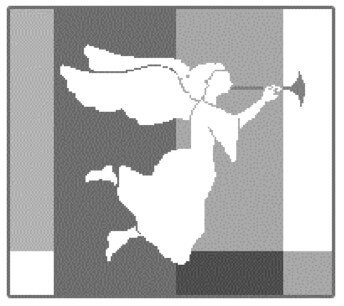December 10
8In that region there were shepherds living in the fields, keeping watch over their flock by night. 9Then an angel of the Lord stood before them, and the glory of the Lord shone around them, and they were terrified. 10But the angel said to them, ‘Do not be afraid; for see—I am bringing you good news of great joy for all the people: 11to you is born this day in the city of David a Savior, who is the Messiah,* the Lord. 12This will be a sign for you: you will find a child wrapped in bands of cloth and lying in a manger.’ 13And suddenly there was with the angel a multitude of the heavenly host,* praising God and saying, 14‘Glory to God in the highest heaven, and on earth peace among those whom he favors!’
Luke 2:8-14
It is most remarkable that it was to shepherds that heaven’s holy angels were dispatched with the Good News of the Savior’s birth. One might have expected that such a world stopping, breathtaking announcement would have gone to Caesar in Rome, to King Herod in Jerusalem, or to the high priests in the Temple nearby. But the first people that God wanted to tell his Good News about the birth of his Son were coarse shepherds.
While we tend to fantasize and idealize these shepherds, and dress them up for our Christmas pageants, the reality is that they were an undesirable lot. New Testament scholar, Joachim Jeremias, says of shepherds in first century Judea, that “most of the time they were dishonest and thieving; they led their herds onto other people’s land and pilfered the produce of the land” (Jeremias, Jerusalem in the Time of Jesus). They weren’t exactly the sort we’d like showing up for our child’s birthday party!
Shepherds had such brutish reputations that people were warned never to buy from them because they could only assume they were buying stolen property. Shepherds were regarded with such distrust and suspicion that the law prohibited them from giving testimony in any law court.
One first century Jewish commentary said “there is not a more disreputable occupation than that of a shepherd” (Jeremias, Jerusalem in the Time of Jesus). The long weeks and months that shepherds spent in the fields meant that they were unable to observe the laws of ritual cleanness, and were thereby banned from the Temple complex and worship. Yet it was to such questionable characters that the glory of God came down that night. It was to such unsavory men that God first entrusted the Good News of salvation.
The bright, blazing, effulgent glory of God that once dwelt in the Holy of Holies in the Temple came down that night to lowly shepherds. What happened next, the old King James puts so well: the shepherds, it says, “were sore afraid.”
As those shepherds left their flocks and scurried across hills and valleys to the stable they must have wondered: “What will Messiah look like?” “How many servants will be attending him?” “What do we present to the Son of God?”
But when out of breath shepherds arrived at the stable, they entered timidly, and bent down low. And there they saw him. There was God’s little Messiah, tucked away in a space hewn from the limestone cave as a feeding trough for livestock. Had not bright holy angels told them they would not have believed their eyes. But to lowly, despised shepherds the eternal God had come down. And the shepherds were afraid no more.
Reflect on the lyrics of this second century Jewish Christian hymn and be in awe:
His love for me brought low his greatness.
He made himself like me so that I might receive him.
He made himself like me so that I might be clothed in him.
I had no fear when I saw him, for he is mercy for me.
He took my nature so that I might understand him,
my face so that I should not turn away from him.
(Odes of Solomon 7)
PONDER
Read, Reflect, Respond, and Rest with today’s scripture text,
Luke 2:8-14, and devotional.
Today’s Moments of Diaphany
- an answer to prayer
- evidence of his love and care
- evidence of his creative power and wisdom
- his help to do his work




